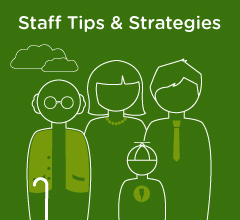Job #1 in Preschool: Teaching Social Skills

Author:
Preschool is a wonderful time to capitalize on children’s natural curiosity about the world. Yet an even more essential lesson from ages 2-5 is developing good social skills.
Activities such as circle time, free play, music, and art help children learn the principles that will allow them to work and play with others companionably now and throughout their lives. These lessons include becoming more independent, cooperating, sharing and taking turns. Mastering these skills is the most important way children can be ready for kindergarten and its more structured educational environment.
Although children naturally begin to learn empathy, a key social skill, even before age 3, adult guidance is also critical to teaching children the self-control and other skills they need.
Fred Rogers, the host of “Mr. Rogers’ Neighborhood” on public television, was a pioneer in teaching social skills to young children through awareness of their feelings and healthy ways to express them. Like Mr. Rogers, you can enhance your teaching through daily classroom activities like these:
- Reading books that teach children about their feelings.
- Creating art projects reflecting sad and happy faces, perhaps in the form of masks. Have children play with the masks in ways that illustrate the differences between sad and happy feelings.
- Acting out ways to respond to another child’s emotions through puppets or role-playing.
- In circle time, discussing and practicing ways children can channel their emotions when they are upset, such as stomping their feet or banging on a drum when angry.
- Encouraging children to help each other and to compromise when they play together. Tell them when you think they have done a good job in dealing with their peers.
When Social Skills Develop Slowly
Early childhood teachers should be aware of children whose social skills may be developing more slowly than their peers’. A child whose social skills may be delayed is one who often acts out because of inability to control his own emotions. Other indicators of poorly developing social skills are frequently coming into conflict with peers, trying to take others’ toys, acting pushy or loud, and often playing alone because of uncertainty about how to join in other children’s games.
For children who may need support beyond the classroom, social skills group therapy led by trained professionals can help children improve their social awareness and skills. Social skills groups, like those provided at JSSA , teach children to identify their own emotions and those of others. They use games and role-playing to practice how to respond with more self-control and empathy. Social skills groups for children can be found around the Washington area.
While social and emotional development continues throughout childhood and adolescence, the preschool years are an important time to begin educating children in these vital life lessons. For more ideas on how to develop social skills in the classroom, visit the website of the Center on the Social and Emotional Foundations of Early Learning (CSEFEL)
JSSA’s Training Institute offers Core of Knowledge (COK) workshops which can be scheduled at your school/center/organization.
